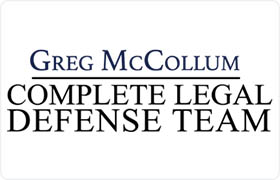Murrells Inlet RICO Act Lawyer, South Carolina, page 2
Sponsored Law Firm
-
 x
x

Click For More Info:
-
Greg McCollum Complete Legal Defense Team
1012 38th Avenue North Suite 202 Myrtle Beach, SC 29577» view mapCriminal Defence Law Complete Legal Defense Team
Our goal at the Complete Legal Defense Team is to examine the facts and circumstances completely and help our clients.
800-634-0690
Not enough matches for Murrells Inlet RICO Act lawyer.
Below are all Murrells Inlet Criminal lawyers.
Dwight J Hudson
Family Law, Criminal, Traffic, Personal Injury
Status: In Good Standing *Status is reviewed annually. For latest information visit here
Trent Chambers
Traffic, Family Law, DUI-DWI, Personal Injury, Divorce
Status: In Good Standing *Status is reviewed annually. For latest information visit here
Matthew Sherrod Swilley
Criminal, Family Law
Status: In Good Standing *Status is reviewed annually. For latest information visit here
Bradley Alexander Floyd
Estate, Divorce & Family Law, Criminal, Accident & Injury
Status: In Good Standing *Status is reviewed annually. For latest information visit here
 Greg McCollum Myrtle Beach, SC
Greg McCollum Myrtle Beach, SC AboutGreg McCollum Complete Legal Defense Team
AboutGreg McCollum Complete Legal Defense Team Practice AreasExpertise
Practice AreasExpertise